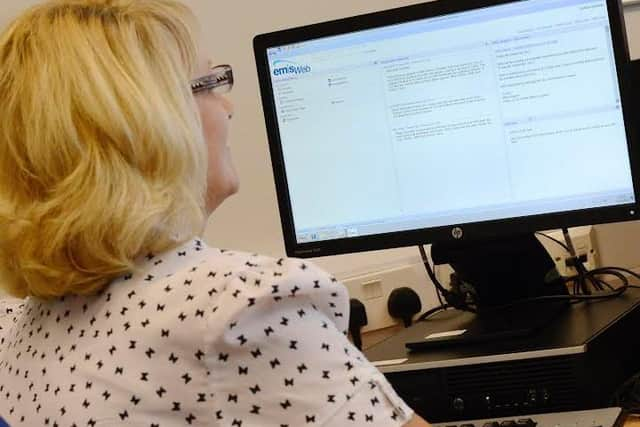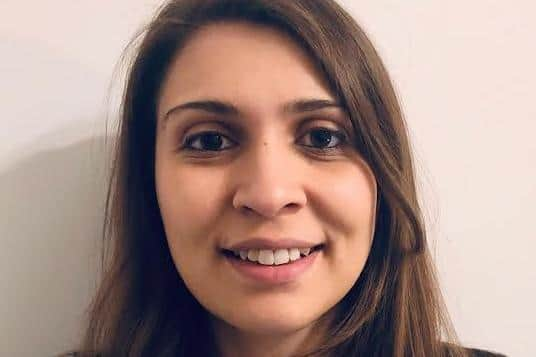Yorkshire company plays a leading role in new cancer research
The new study used anonymised GP records held by Leeds-based Emis. The research was led by Dr Defne Saatci from the University of Oxford, using the QResearch database of over 35 million anonymised GP patient records held on the Emis clinical computer system.
The research was presented at the National Cancer Research Institute Festival today.
Advertisement
Hide AdAdvertisement
Hide AdQResearch is a not for profit database, which was set up by Emis 15 years ago to improve the health of the nation and has now become one of the biggest and richest primary care databases in the world.


Emis’ role has been to set up the concept and the framework and to encourage GP practices to take part.
More than 1,500 Emis practices, representing around 30 million patients, regularly contribute to the database. It also contains historical records dating back to 1989.
Dr Saatci said: “Spotting cancer early and starting treatment promptly gives children and young people the best chance of surviving.
Advertisement
Hide AdAdvertisement
Hide Ad“We already know that the Covid-19 pandemic led to worrying delays in diagnosis and treatment for many adults with cancer, so we wanted to understand how the pandemic affected children’s cancer services.”


Dr Saatci and her colleagues used QResearch to study the numbers of different cancers diagnosed in children and young adults up to the age of 25 in the first wave of the pandemic, between February 1 and August 15, 2020.
They compared this with diagnoses during the same time period in the three preceding pre-pandemic years. They also looked at the amount of time between diagnosis and the start of treatment and whether patients were diagnosed after being admitted to intensive care.
Dr Shaun O’Hanlon, chief medical officer at Emis, said: “This is an important piece of research using real-life GP data to better understand the deficit in care caused by the pandemic – a critical area for the NHS to address as it moves forward.”
Advertisement
Hide AdAdvertisement
Hide AdDr Saatci and her colleagues will now use QResearch to study the impact of the subsequent waves of Covid-19 on diagnosis of childhood cancer in England.
The children’s cancer diagnosis project is the latest in a long line of public health research projects to be conducted using QResearch.
Another recent project was the creation of an algorithm (QCovid) that was used to identify the most vulnerable people and prioritise them for a Covid vaccination. This initiative, which was commissioned by England’s Chief Medical Officer, Professor Chris Whitty, recently won a prestigious national computing award.
Dr O’Hanlon said: “Emis is incredibly proud to have supported this important piece of research, which continues to enable the NHS to protect more vulnerable people, more quickly, from Covid-19.
Advertisement
Hide AdAdvertisement
Hide Ad“This is the latest in a long list of research projects that has been powered by real life data collected from thousands of GP consultations every day. We are thankful to the GP practices that have supported QResearch over the last 15 years - without them this important initiative would not be available to help improve the health of the nation.”